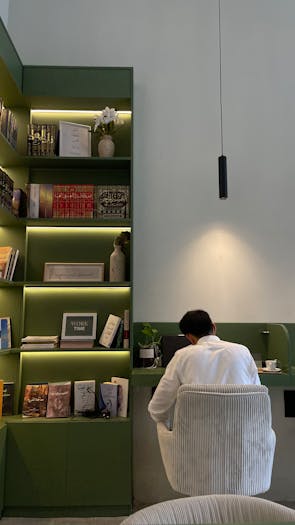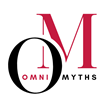Myth Debunked: Does Being Organized Mean Perfection?

Does Being Organized Mean Perfection?
Want to transform your daily routine but think organization requires a perfect, stress-free life? The myth of perfect organization makes you believe that being organized means flawless spaces and schedules, but that’s far from the truth. Organized people use simple, practical habits to create balance and reduce stress, not to chase perfection. Join omnimyths.com to debunk this myth and discover ways to get organized for a calmer, more fulfilling lifestyle!
The Origins: Where Did the Perfect Organization Myth Come From?
The myth of perfect organization began centuries ago. In the Victorian era, orderly homes were seen as a sign of moral virtue, with manuals preaching spotless domesticity (Smithsonian Institution, 2022). Today, X posts with #PerfectHome showcase curated, clutter-free spaces, setting unrealistic standards (Forbes, 2025). From Japan’s minimalist trends to Western productivity influencers, the idea of perfection in organization has gone global.
Social media fuels this myth. Flawless desks and color-coded planners on X make organization seem like a performance, not a practical habit. The reality, though, is messier and more achievable.
Why We Believe the Myth
Why does the myth of perfect organization stick around? It taps into our craving for control and societal pressure to look flawless.
Imagine Priya, a small-business owner in Mumbai, stressed because her shop isn’t Instagram-perfect. The myth’s appeal lies in the dream of a “perfect” life, but it creates unrealistic expectations (American Psychological Association, 2023). In Nigeria, Canada, or India, organized spaces signal success, making imperfection feel like failure. X posts with #ProductivityHacks amplify this, making how to be tidy and organized seem out of reach.
Perfectionism drives this belief. A 2023 study found 60% of people avoid organizing due to fear of not being “perfect” (Journal of Behavioral Science, 2023).
Debunking the Perfect Organization Myth
Organized People Make Mistakes
Organized people aren’t perfect—they use systems to recover from slip-ups. Forgetting a task or having a messy day is normal, but planners help them regroup (Psychology Today, 2023). A 2024 study showed flexible systems, like adjustable to-do lists, boost productivity by 20% despite errors (Journal of Organizational Behavior, 2024). Alex in London rescheduled a missed meeting using his app, proving adaptability beats perfection.
This debunks the myth of perfect organization. It’s about progress, not flawlessness.
Perfectionism Sabotages Your Day
Perfectionism stalls organization efforts. A 2023 study found perfectionists waste 15% more time overthinking tasks, slowing progress (Journal of Positive Psychology, 2023). Sarah in Chicago organizes one drawer instead of her whole house, keeping things manageable. How to be tidy and organized means embracing “good enough.”
Globally, this clicks. Japan’s Wabi-Sabi philosophy values imperfection, aligning with practical organization (National Geographic, 2024).
Clutter Is Normal
The myth of perfect organization assumes constant tidiness. Organized people manage clutter, not banish it. Tidy spaces improve focus by 18%, but occasional mess is expected (Journal of Environmental Psychology, 2024). Maria in São Paulo declutters weekly, accepting that chaos creeps in.
X users sharing #OrganizedLife admit to messy moments, showing perfection isn’t required. Organization is about systems, not spotless days.
Organization Fits Your Life
The myth pushes one “perfect” way to organize, but habits vary. Some prefer apps like Trello, others notebooks, based on personal needs (Harvard Business Review, 2023). A 2023 study found personalized systems increase efficiency by 22% (Journal of Management, 2023). Ahmed in Dubai uses apps, while Priya sticks to paper—both work.
This flexibility shatters the myth of perfect organization. Ways to get organized are unique to you.
How Organization Boosts Your Lifestyle
Organization isn’t just about tidy desks—it transforms your daily life. A clutter-free space reduces stress by 25%, freeing mental energy for hobbies or family time (American Psychological Association, 2023). Simple habits, like planning your day, save hours weekly, giving you more control and balance. This is why how to be tidy and organized is a lifestyle game-changer.
For example, John in Sydney uses time blocking to balance work and exercise, feeling calmer. X posts with #ImperfectlyOrganized show people globally embracing organization for a better life (BBC, 2025).

The Real Impact of the Myth
The myth of perfect organization can stress you out. Believing you need perfection to organize increases anxiety, with 50% of perfectionists reporting stress over clutter (American Psychological Association, 2023). Priya felt defeated until she adopted simple habits, easing her daily routine. X posts about #OrganizationFails reveal the myth’s pressure worldwide (Forbes, 2025).
The myth also stops action. In Kenya, students skip planning if it’s not flawless, missing academic gains (Journal of Educational Psychology, 2023). Embracing imperfection unlocks ways to get organized.
Practical Ways to Get Organized Without Perfection
Ready to live the organized lifestyle? Here’s how to be tidy and organized:
Start Small
- Tackle one spot: Organize a desk or bag to build momentum.
- Set short tasks: Spend 10 minutes tidying daily.
- Forgive mess: Accept chaos as part of life (Psychology Today, 2023).
Build Simple Systems
- Use tools: Try apps or notebooks for tasks.
- Adjust plans: Tweak schedules when life gets busy.
- Prioritize: Focus on key tasks, like work or family (Harvard Business Review, 2023).
Embrace Progress
- Celebrate wins: A tidy corner is a step forward.
- Learn more: Check student tips at basiceducation.pk for organization ideas.
These ways to get organized fit any lifestyle. For more habits, see our published Medium guide on 10 habits of organized people!
Real-Life Wins Over the Myth
Sarah, a teacher in Toronto, ditched perfectionism by planning weekly, boosting her work-life balance. A 2025 X campaign with #ImperfectlyOrganized shared stories like a Nigerian entrepreneur using simple lists to manage her shop (Forbes, 2025). These global wins show rejecting the myth of perfect organization creates calmer days. Practical habits make organization a lifestyle, not a fantasy.
Conclusion
The myth of perfect organization misleads us into chasing flawless routines, but organization is about practical, imperfect habits that enhance your daily life. Start small, build systems, and embrace progress to master how to be tidy and organized. Try these tips for a balanced lifestyle, and check our Medium guide for more ways to get organized. Explore more life-changing ideas at omnimyths.com!
Frequently Asked Questions
Q: What is the myth of perfect organization?
A: The myth of perfect organization claims organization requires flawless spaces and schedules (Smithsonian Institution, 2022). In truth, organized people use practical systems and accept mistakes. Flexible habits boost productivity by 20% (Journal of Organizational Behavior, 2024). It’s about progress, not perfection.
Q: How can I be organized without being perfect?
A: To master how to be tidy and organized, start with small tasks like tidying a desk and use tools like planners (Psychology Today, 2023). Accept occasional mess and prioritize key tasks. Personalized systems improve efficiency by 22% (Journal of Management, 2023). Visit omnimyths.com for tips.
Q: Why does perfectionism hurt organization?
A: Perfectionism delays organization by causing overthinking, cutting productivity by 15% (Journal of Positive Psychology, 2023). The myth of perfect organization adds stress, stopping action. Practical systems, not flawless ones, are key. These ways create balance for getting organize.
Q: What are simple ways to get organized?
A: Simple ways to get organized include decluttering one area, using apps like Trello, and setting short goals (Harvard Business Review, 2023). Forgive slip-ups and celebrate progress. Students can find tips at basiceducation.pk. Start small for big lifestyle changes.
Q: How does organization improve daily life?
A: Organization reduces stress by 25% and boosts focus by 18%, creating a calmer lifestyle (American Psychological Association, 2023). Habits like planning save time for hobbies or family. Explore student organization at basiceducation.pk. Check Medium for more organized lifestyle tips.
